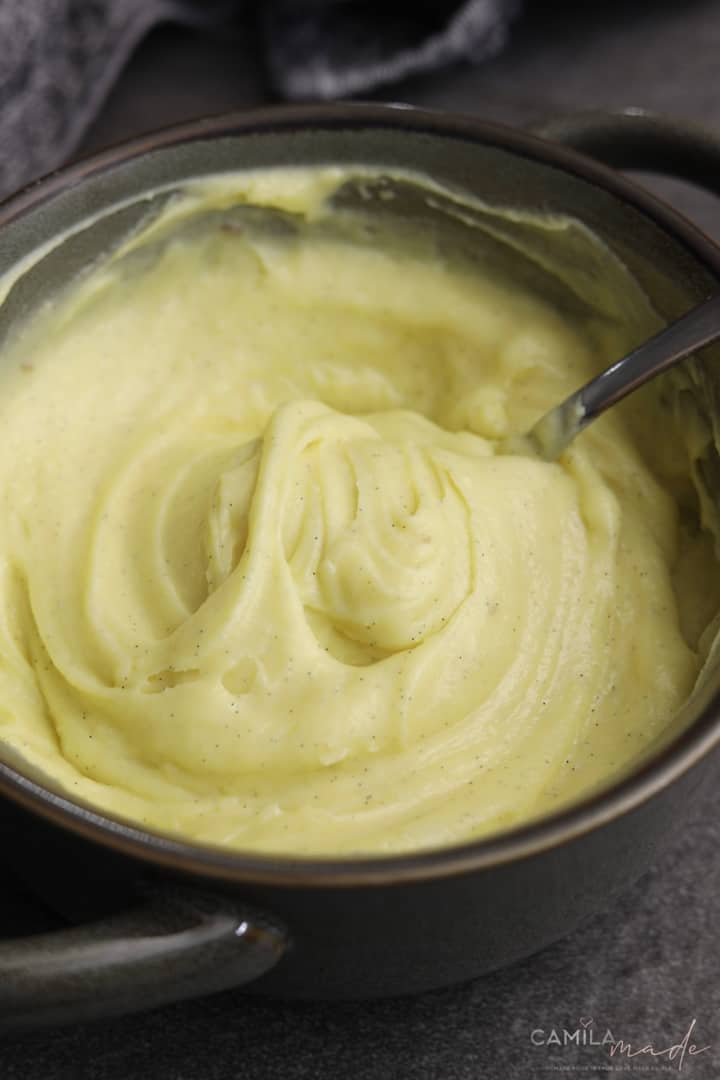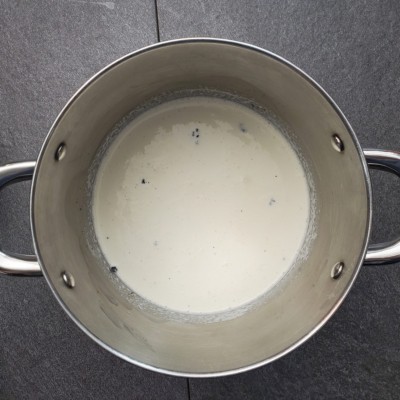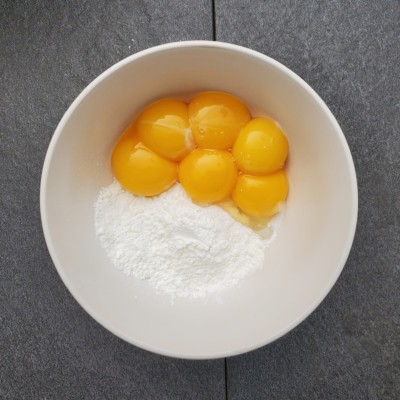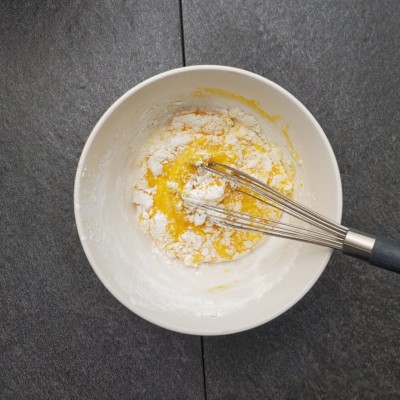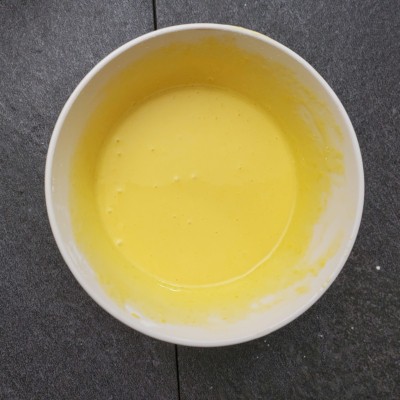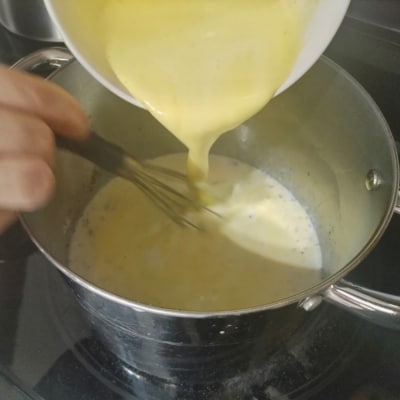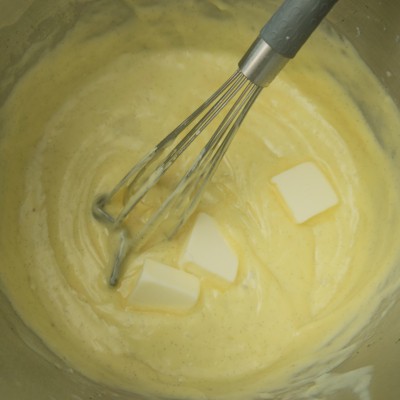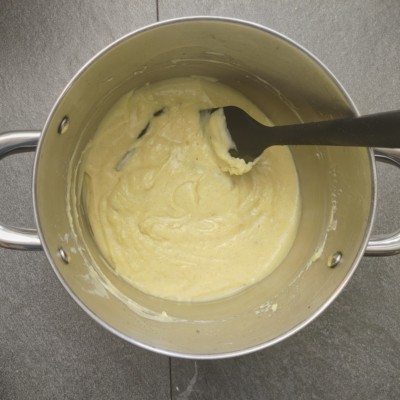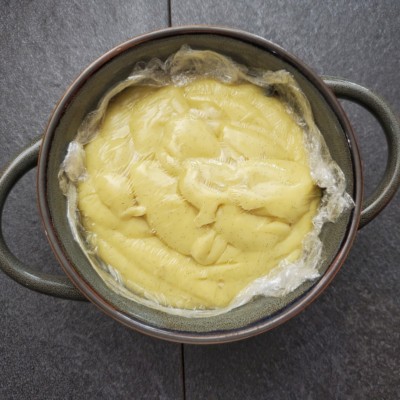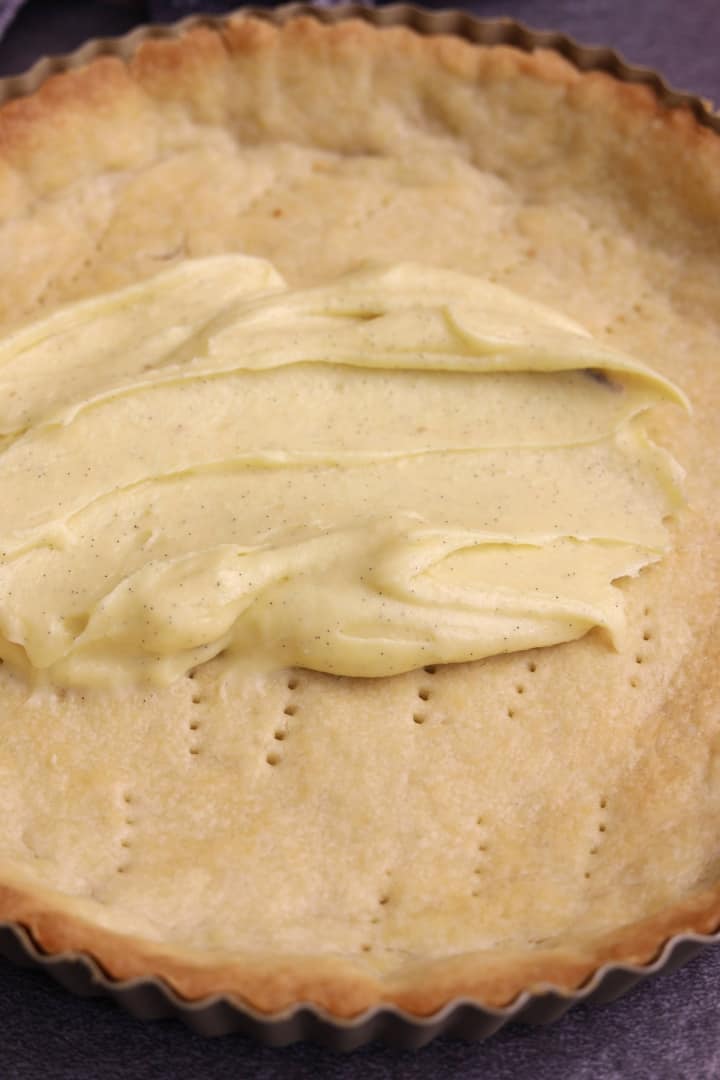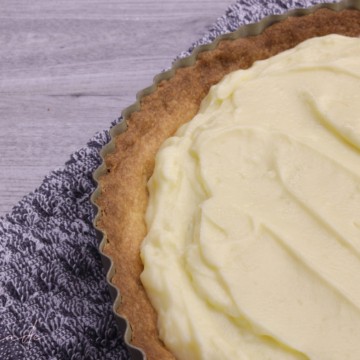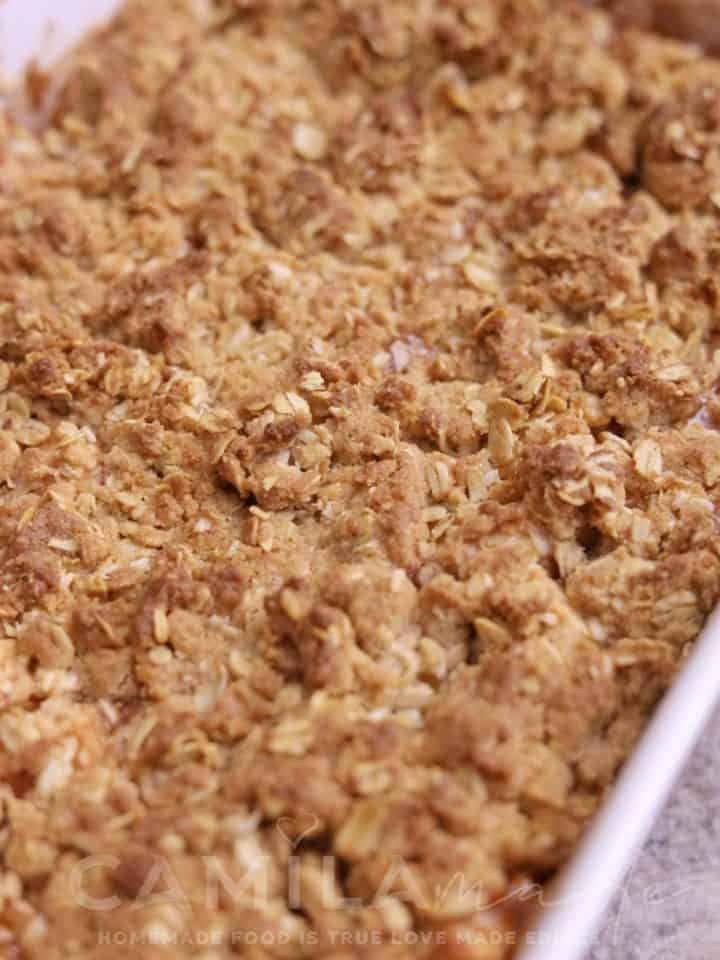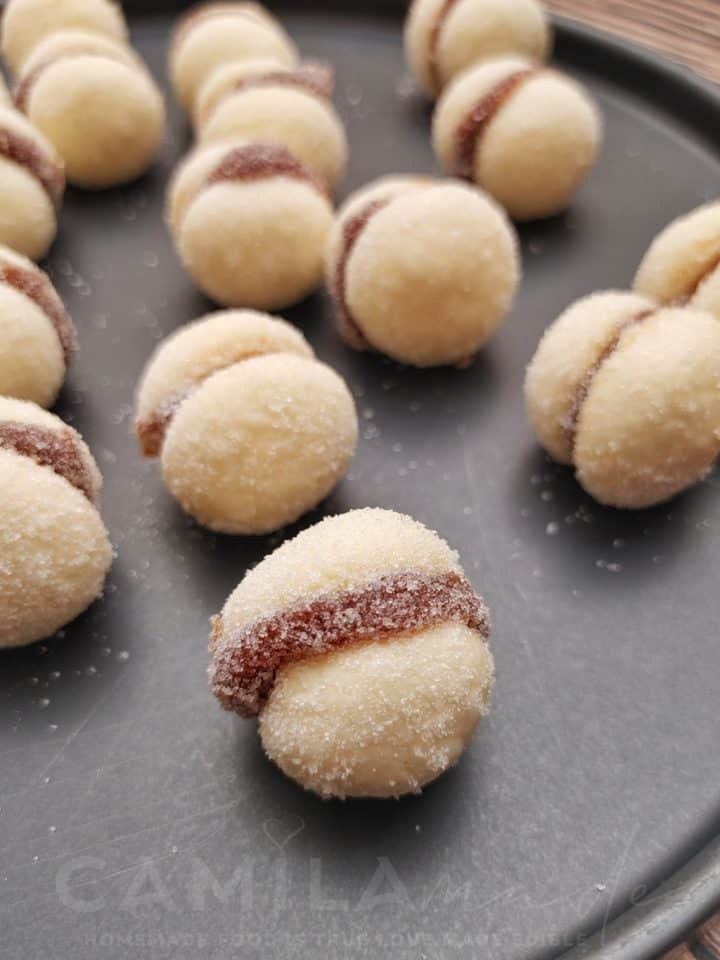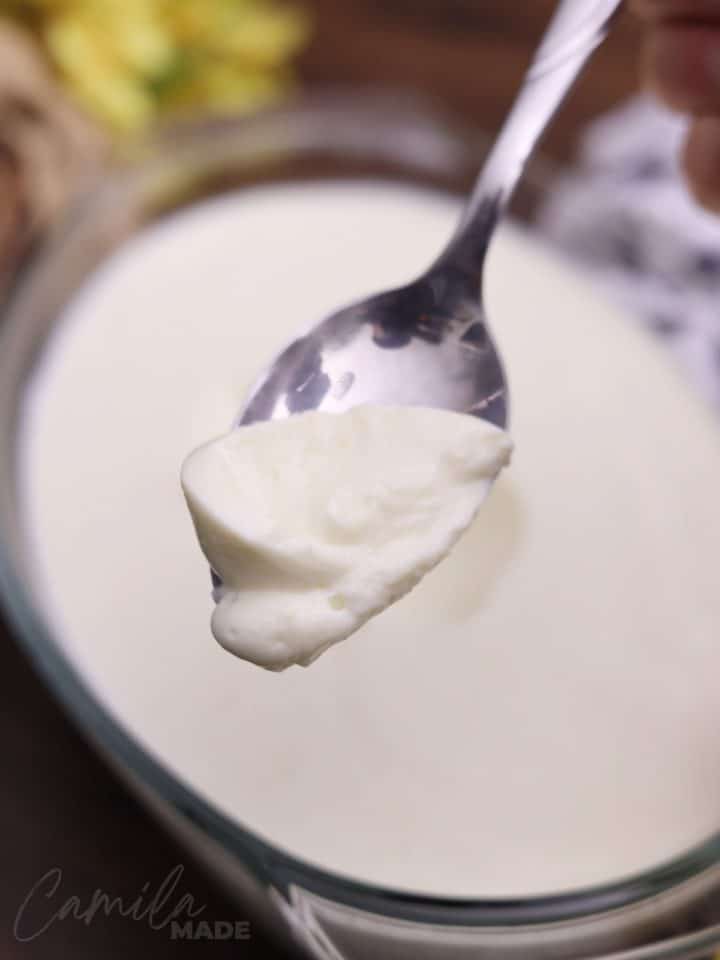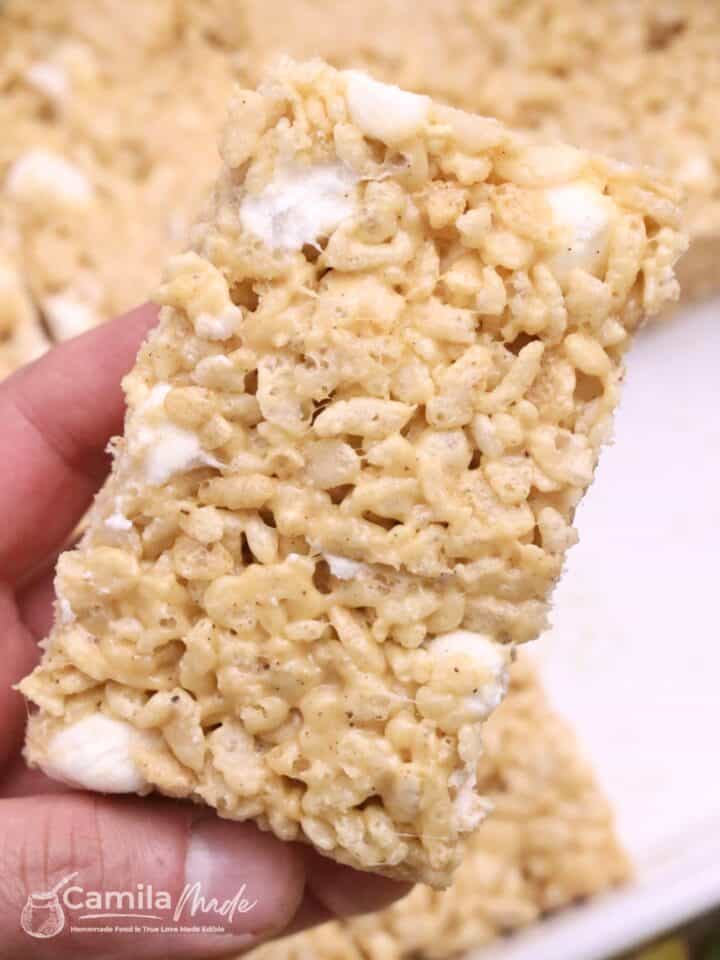Crema Pastelera (pastry cream) is one of the most popular creams used in making desserts. It's perfect for filling or topping sweet treats like Bollo Paraguayo, fruit tarts, eclairs, mille-feuille, and profiteroles.
The best part is it's really easy to make with common ingredients you likely already have in your pantry – milk, eggs, sugar, cornstarch, and vanilla extract.
Our Crema Pastelera recipe is just what you need to make your desserts extra special. For a super creamy and rich result, you can use whole milk with heavy cream or simply stick to whole milk for a high-fat content.
And don't forget to use a vanilla bean or good-quality vanilla extract to add delicious flavor and depth to the Crema Pastelera. With our recipe, you'll have the perfect topping, filling, or dipping for all your sweet creations.
Get ready to impress your friends and family with this delicious Crema Pastelera!
How to Make Crema Pastelera
Note: The full instructions are provided in the recipe card below.
In a medium stainless steel saucepan over medium heat, combine the whole milk and add half of the sugar. Include the vanilla bean along with the scraped seeds.
If you're using vanilla extract, you'll add it later. Bring the mixture to a gentle boil while stirring continuously to dissolve the sugar and prevent the mixture from burning on the bottom of the pot. Be attentive during this process to avoid boiling over, adjusting the heat as needed.
While the milk mixture is heating up, prepare the egg yolk mixture. In a separate bowl, whisk together the egg yolks, cornstarch, salt, and the remaining granulated sugar until it becomes smooth and pale yellow.
This process usually takes about 5 minutes. This step is crucial as it helps create a creamy and luscious Crema Pastelera.
Once the milk is just about to boil, remove the vanilla bean (if using) and slowly pour a small amount of the hot milk into the egg yolk mixture while whisking continuously.
This is called tempering, and it helps prevent curdling. Gradually pour the rest of the hot milk into the bowl with the egg yolk mixture while whisking constantly.
Pour the mixture back into the saucepan and place it over medium heat. Cook the pastry cream, stirring constantly and vigorously with a whisk to prevent lumps and ensure even cooking.
Continue cooking until the mixture thickens and comes to a gentle boil, and the whisk leaves a trail in it. This usually takes about 8 minutes. You want the pastry cream to reach a pudding-like consistency.
Once the pastry cream has thickened, remove the saucepan from the heat. Add the vanilla extract and butter and stir until the butter is completely melted.
Transfer the hot pastry cream to a clean nonreactive bowl or container and cover it with plastic wrap, making sure the plastic touches the surface of the cream. This prevents a skin from forming on the surface.
Let the crema pastelera cool over an ice water bath or at room temperature for a few minutes, then refrigerate it for at least 2 hours before using. The cooling and chilling process will further thicken the pastry cream and enhance its texture.
Camila's Tip: Use a nonreactive saucepan for Crema pastelera (pastry cream) to prevent off-flavors and discoloration.
See More Recipes:
📖 Recipe
Easy Crema Pastelera
Tools
- Hand Mixer or Whisk
Ingredients
- 500 ml (2 cups) whole milk
- 1 whole vanilla bean, split lengthwise and seeds scraped out with a small spoon or 1 tablespoon pure vanilla extract
- 100 g (½ cup) granulated sugar divided
- 30 g (¼ cup) cornstarch
- ⅛ teaspoon kosher salt
- 6 large egg yolks or 3 large whole eggs
- 3 tablespoons unsalted butter cut into small pieces
Instructions
- In a medium stainless steel saucepan over medium heat, combine the whole milk and add half of the sugar. Include the vanilla bean along with the scraped seeds. If you're using vanilla extract, you'll add it later. Bring the mixture to a gentle boil while stirring continuously to dissolve the sugar and prevent the mixture from burning on the bottom of the pot. Be attentive during this process to avoid boiling over, adjusting the heat as needed.
- While the milk mixture is heating up, prepare the egg yolk mixture. In a separate bowl, whisk together the egg yolks, cornstarch, salt, and the remaining granulated sugar until it becomes smooth and pale yellow. This process usually takes about 5 minutes. This step is crucial as it helps create a creamy and luscious Crema Pastelera.
- Once the milk is just about to boil, remove the vanilla bean (if using) and slowly pour a small amount of the hot milk into the egg yolk mixture while whisking continuously. This is called tempering, and it helps prevent curdling. Gradually pour the rest of the hot milk into the bowl with the egg yolk mixture while whisking constantly.
- Pour the mixture back into the saucepan and place it over medium heat. Cook the pastry cream, stirring constantly and vigorously with a whisk to prevent lumps and ensure even cooking. Continue cooking until the mixture thickens and comes to a gentle boil, and the whisk leaves a trail in it. This usually takes about 8 minutes. You want the pastry cream to reach a pudding-like consistency.
- Once the pastry cream has thickened, remove the saucepan from the heat. Add the vanilla extract and butter and stir until the butter is completely melted. Transfer the hot pastry cream to a clean nonreactive bowl or container and cover it with plastic wrap, making sure the plastic touches the surface of the cream. This prevents a skin from forming on the surface.
- Let the crema pastelera cool over an ice water bath or at room temperature for a few minutes, then refrigerate it for at least 2 hours before using. The cooling and chilling process will further thicken the pastry cream and enhance its texture.
- Camila's Tip: Use a nonreactive saucepan for Crema pastelera (pastry cream) to prevent off-flavors and discoloration.
Notes
All nutritional information is based on third-party calculations and is only an estimate. Each recipe and nutritional value will vary depending on the brands you use, measuring methods, and portion sizes per household.
